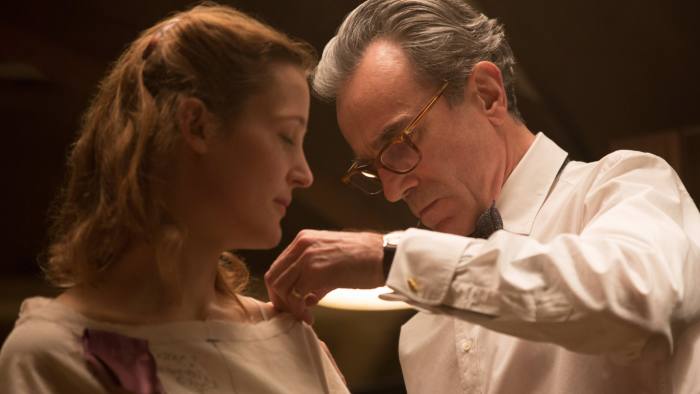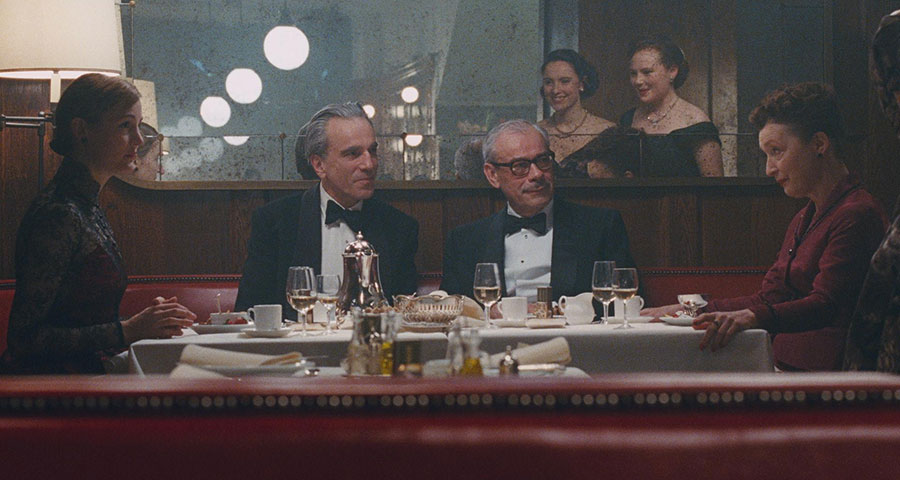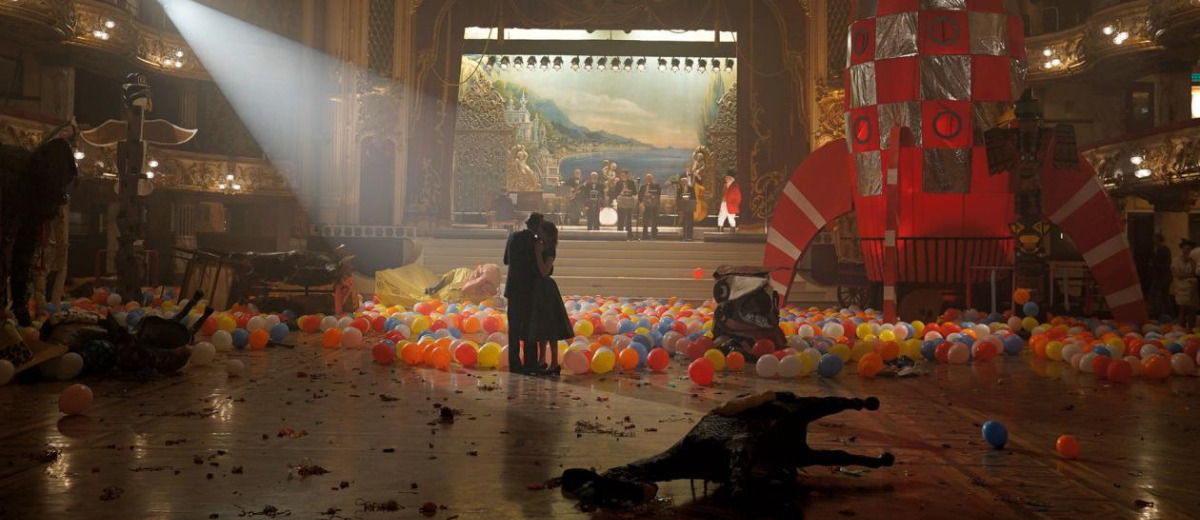Phantom Thread



Exquisite, exquisite, exquisite. This film drips class, style, and sophistication in every craft it handles. It is at once beautiful, haunting, and timeless.
In 1950s London, the House Of Woodcock produces high-fashion dresses for society’s elite. Run by Reynolds Woodcock, played by Daniel Day-Lewis, and his icey, pragmatic sister Cyril, Reynolds runs a strict routine that allows his creative flow to flourish, whilst courting beautiful women he lets into his life whom he dismisses if they disturb the rhythm of his surroundings; until he meets Alma, a young waitress with whom he falls in love, who becomes on the one hand a muse and on the other a challenge to overcome.
Despite his resistance to her, his wanting her to leave, Alma will not give up on finding a way to access Reynolds more humanistic, gentler and loving side. Her solution is macabre, dark, and gothic in spirit, reminiscent of classic 18th century tales à-la-Brothers Grimm.
It’s almost pointless to point out that Daniel Day-Lewis is in absolute top form and way ahead of the game in what is reported to be his final role. It is not because the character is likeable that as an audience we agree to follow him for a couple of hours. It’s because of the truth and sincerity the masterful Day-Lewis is capable of displaying. His counterpart Vicky Krieps I had never heard of before, nor do I know how she was discovered to play this role, but she is every bit as truthful, feisty, and enigmatic as Day-Lewis, carrying the air of a Hollywood star from a bygone age.
More is said in the characters’ visual interactions and hidden intentions than in their dialogues. The camera picks up on the smallest of nuances, whilst the editing of certain scenes structures the evolving feelings of each protagonist’s swaying comforts and discomforts in being watched, judged or admired.
In the hands of one of our greatest living directors, Paul Thomas Anderson, the film is the cinematic equivalent of something between an opera and an epic novel. This sits comfortably alongside his repertoire of great modern humanist epics, adding another unforgettable opus to the history of cinema.
